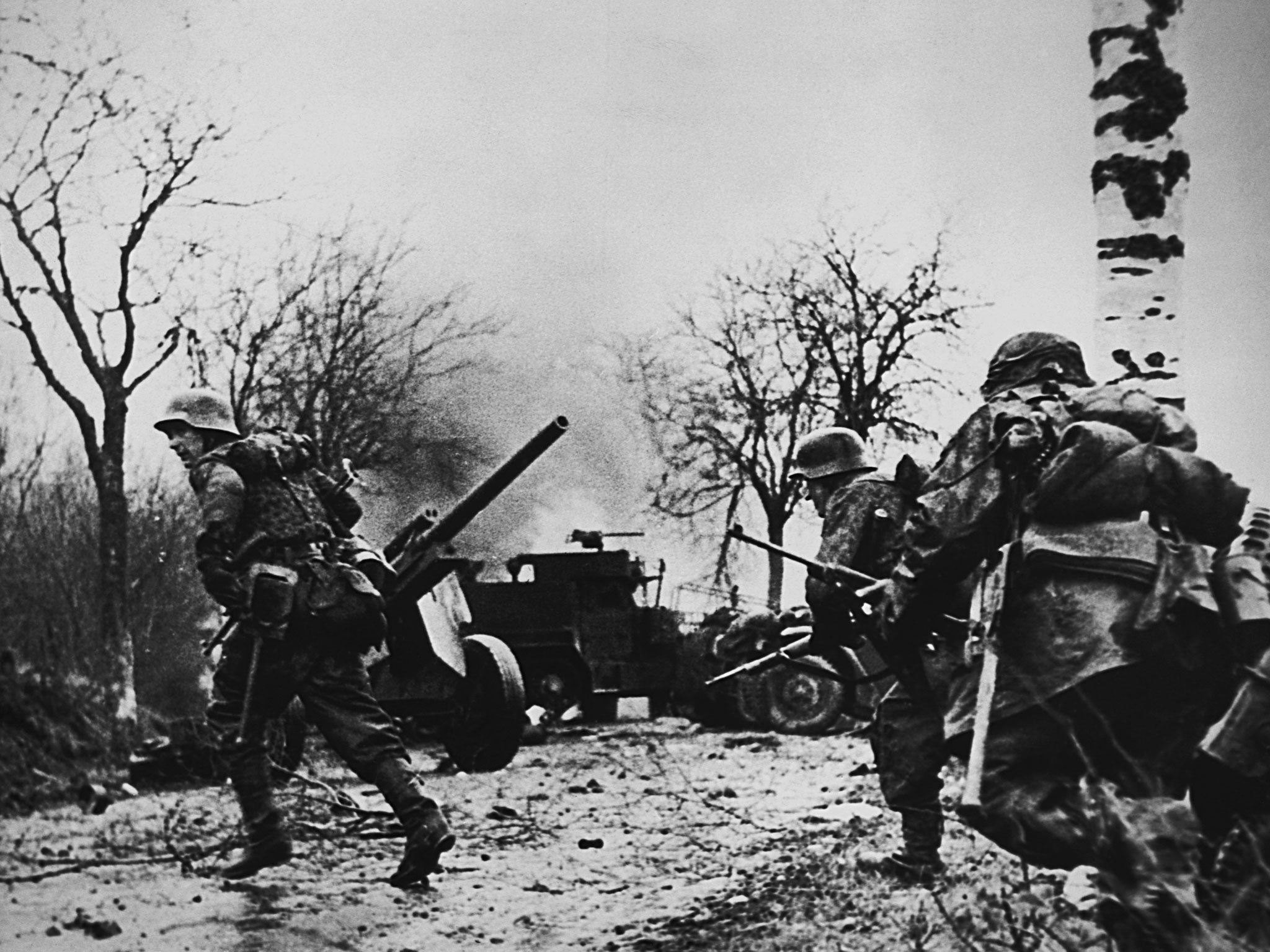Ardennes 1944 by Antony Beevor, book review: A sobering analysis of Hitler's crackpot scheme
Beevor's book is written with all the aplomb that his fans would expect

Your support helps us to tell the story
From reproductive rights to climate change to Big Tech, The Independent is on the ground when the story is developing. Whether it's investigating the financials of Elon Musk's pro-Trump PAC or producing our latest documentary, 'The A Word', which shines a light on the American women fighting for reproductive rights, we know how important it is to parse out the facts from the messaging.
At such a critical moment in US history, we need reporters on the ground. Your donation allows us to keep sending journalists to speak to both sides of the story.
The Independent is trusted by Americans across the entire political spectrum. And unlike many other quality news outlets, we choose not to lock Americans out of our reporting and analysis with paywalls. We believe quality journalism should be available to everyone, paid for by those who can afford it.
Your support makes all the difference.We are all so used to the idea of the Victory in Europe coming in May 1945 that one can easily forget that – at the time – most people expected the war to finish a good deal sooner. The Nazi empire looked done for by the middle of 1944. In the east, the Red Army was barrelling westwards at a tremendous pace into the Baltics, Poland and Hungary. In the west, the American and British lost no time in clearing France and Belgium within months of landing in Normandy. Surely it would all be over by Christmas?
But the Allied advance in the west slowed. Hitler's decimated and hopelessly outnumbered army neither crumbled nor defected. On the contrary, the Allies' insistence on unconditional surrender and loose talk in the US of turning Germany into an agrarian wasteland, played into the hands of the Nazi propagandists and encouraged the Germans to fight on.
What might have happened, had the Nazis husbanded their remaining resources to defend the rump of Germany? We shall never know, because Hitler now played his last card – an offensive into the Ardennes. The idea was to throw everything into a dash through the wooded hills of southern Belgium, snatch back Antwerp, divide the Allied armies and force the Brits into a second Dunkirk. Known feuds between the Allies would then hopefully morph into something bigger, allowing Germany to wriggle free and escape annihilation. It sounded more like a joker than an ace. But Hitler was obsessed with the way that his hero, Frederick the Great, had extracted Prussia from the threat of annihilation in the Seven Years War and had convinced himself he could pull off a similar trick.
No one outside the dictator's bunker had much faith in this crackpot scheme and Germany's half-starved army, now mainly composed of old men, untrained boys and conscripts from places like Poland, duly got bogged down near Dinant, nowhere near Antwerp. The only thing Hitler succeeded in doing was in giving the Allies a good fright. Beevor notes that it was odd that they had left themselves so unprotected in the Ardennes, given that the Prussian army in 1870 and the German army in 1914 and 1940 had invaded France from precisely this point.
Beevor is as good on the rows behind the front lines as he is on the battles themselves. Friction between those two preening, jealous generals, Britain's Montgomery and Omar Bradley, the American commander of Allied forces to the south, was damaging. Beevor is especially harsh on Monty, portraying him as a prima donna whose loose mouth caused Churchill a good deal of trouble. Montgomery's desperate attempts to assert Britain's waning prestige clearly irked the Americans; Beevor maintains that the legacy of the ill feeling he caused may even have a played a part in determining America's coldness towards Britain in the Suez crisis, more than ten years later. Still, his sparring partner, Bradley, sounds singularly unattractive. Beevor writes that he almost had a fit when he learned that Time magazine had not chosen him to be its Man of the Year. As for the poor old Brits, Bradley thought their only military role was to guard the flank of America's "giant steamroller".
The ten-day offensive in the Ardennes resulted in a lot of unnecessary deaths, but otherwise achieved nothing. By Christmas Day 1945, the great gamble was over. The only real result, Beevor writes, was to leave Germany's eastern frontier even more completely drained of manpower than it had been, and even less capable of withstanding the Red Army. In that sense, the sole beneficiary of Hitler's last gamble was Stalin. He was able to push further and faster into Eastern Europe – and so begin the process of dividing the continent into two blocs, one of which would be subservient to him. A sweeping, sobering read, written with all the confidence and aplomb that Beevor fans would expect.
Join our commenting forum
Join thought-provoking conversations, follow other Independent readers and see their replies
Comments